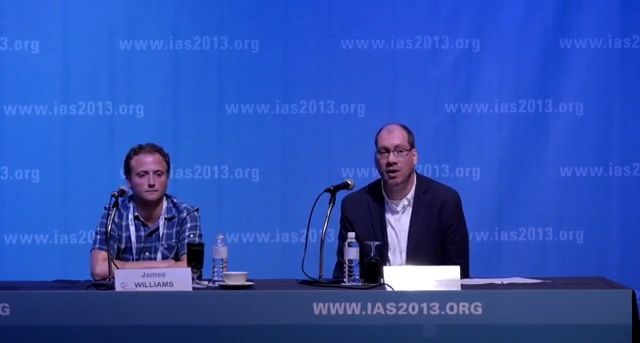Article
Stem Cell Transplantation May Hold Promise for HIV Infection Eradication
Author(s):
Two male patients with prolonged HIV infection who received hematopoietic stem cell transplants still remain virus-free several consecutive weeks after their antiretroviral treatments were discontinued this spring.

Two male patients with prolonged HIV infection who received hematopoietic stem cell transplants still remain virus-free several consecutive weeks after their antiretroviral treatments were discontinued this spring, researchers from Brigham and Women’s Hospital in Boston announced at a late breaking news session at the 7th International AIDS Society Conference on HIV Pathogenesis, Treatment and Prevention (IAS 2013) held June 30 to July 3 in Kuala Lumpur, Malaysia.
At last year’s IAS conference, researchers Daniel Kuritzkes, MD, and Timothy Henrich, MD, from Brigham and Women's Hospital reported that both “Boston Patients” showed no traces of HIV while staying on antiretroviral medication regimens after undergoing reduced-intensity conditioning bone marrow transplants for lymphoma with donor cells that were susceptible to HIV infection. With the first patient currently being off of those medications for seven weeks and the second patient for 15 weeks, the physicians were able to report at IAS 2013 that there is still no indication of HIV rebound in their blood and lymphocytes to date.
While that sustained absence of detectable HIV DNA in the “Boston Patients” sans antiretroviral treatment offers hope for stem cell transplantation as a potential functional HIV cure, Henrich heavily stressed at the press conference that “longer-term follow-up is going to be needed to understand the full impact of stem cell transplantation with susceptible cells on viral persistence and reservoir ablation,” as he noted “it is possible the virus could come back next week, it’s possible it could come back in a few months from now, and it’s even possible that it could take one to two years for the virus to return in these patients.”
Additionally, Henrich noted that stem cell transplantation itself is expensive and dangerous — as there can be a 20 percent or greater mortality in cancer patients within the first year of the procedure, though he doesn’t know the risk in otherwise healthy HIV-infected patients — so he stressed that it’s “not a practical strategy that we can do for most people with HIV.”
Though Henrich acknowledged that researchers can learn more about HIV management without antiretroviral treatment from case studies similar to the “Boston Patients,” he said “what we would like to know is, ‘How low do we need to go? … What level of reduction of the reservoir do you need to do to have a lasting impact?’” Henrich concluded that he hopes the study’s ongoing results “will shed some light on this very, very important question.”
"Boston Patients" portion begins at 14:04


